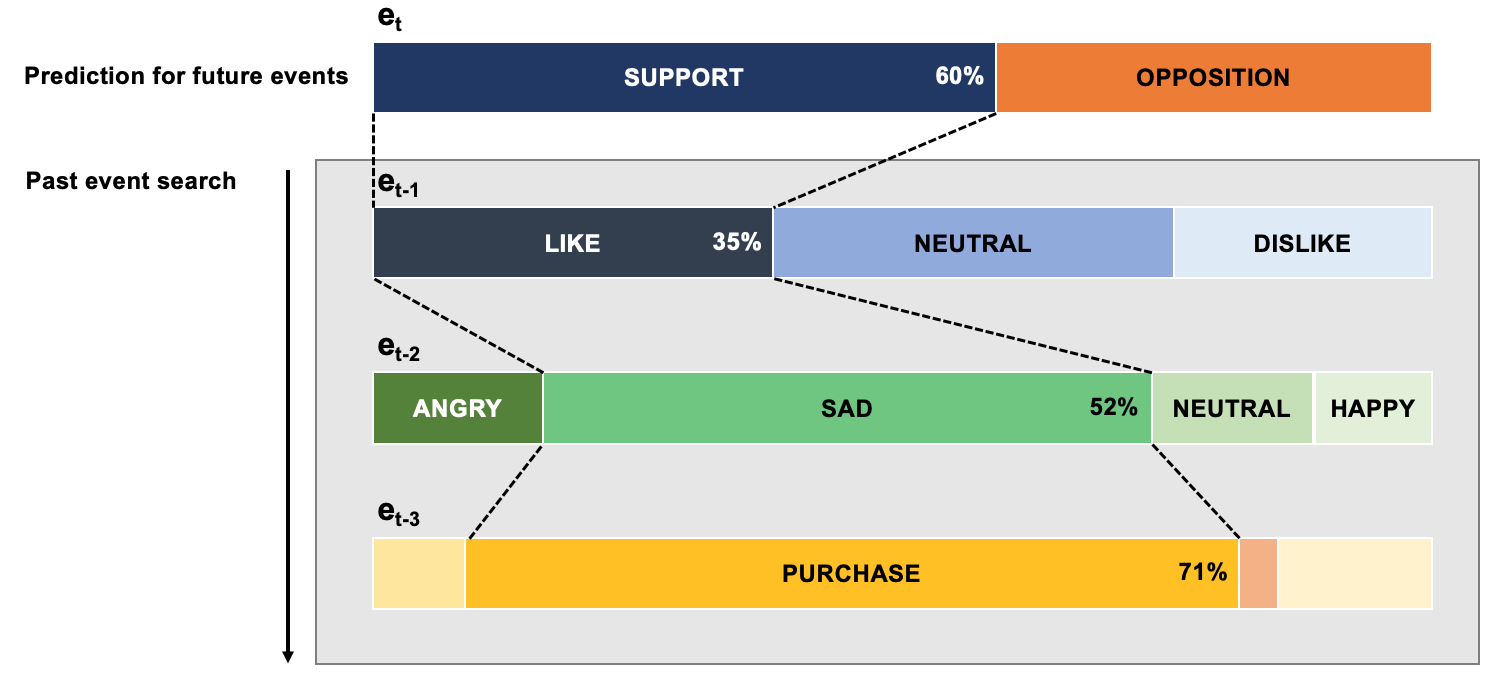Contemporary media systems are shaped by diverse constellation of organizations, groups, and individuals contributing information to national and international news flows. In our project, we analyze interdependencies and power relationships among these new constellations. We do so through the concept of discursive power: the ability of contributors to communication spaces to introduce, amplify, and maintain topics, frames, and speakers in interconnected communication spaces.

The objective of this research is to develop a predictive system that enables stakeholders (e.g. policymakers, politicians, celebrities, and business organizations) to know how people will behave in the future and that provides a solid understanding of these behaviors to help stakeholders' strategic planning. In particular, we will exploit past behaviors to predict future behaviors.
Please visit my publication page or Google scholar profile for the full list of publications.
# Is ChatGPT better than Human Annotators? Potential and Limitations of ChatGPT in Explaining Implicit Hate Speech
Fan Huang, Haewoon Kwak, Jisun An
ACM Web Conference (Short paper) 2023 (To appear)
arXiv
# FrameAxis: Characterizing Framing Bias and Intensity with Word Embedding
Haewoon Kwak, Jisun An, Yong-Yeol Ahn
PeerJ 2022
Link | PDF | arXiv
# Political Discussions in Homogeneous and Cross-Cutting Communication Spaces
Jisun An, Haewoon Kwak, Oliver Posegga, Andreas Jungherr
Proceedings of the International AAAI Conference on Web and Social Media (ICWSM) 2019
Link | PDF | arXiv
# SemAxis: A Lightweight Framework to Characterize Domain-Specific Word Semantics Beyond Sentiment
Jisun An, Haewoon Kwak, Yong-Yeol Ahn
Proceedings of the 56th Annual Meeting of the Association for Computational Linguistics (ACL) 2018
Link | PDF | arXiv
# What We Read, What We Search: Media Attention and Public Attention Among 193 Countries
Haewoon Kwak, Jisun An, Joni Salminen, Soon-Gyo Jung, Bernard J. Jansen
Proceedings of the 2018 World Wide Web Conference (TheWeb) 2018
Link | PDF | arXiv